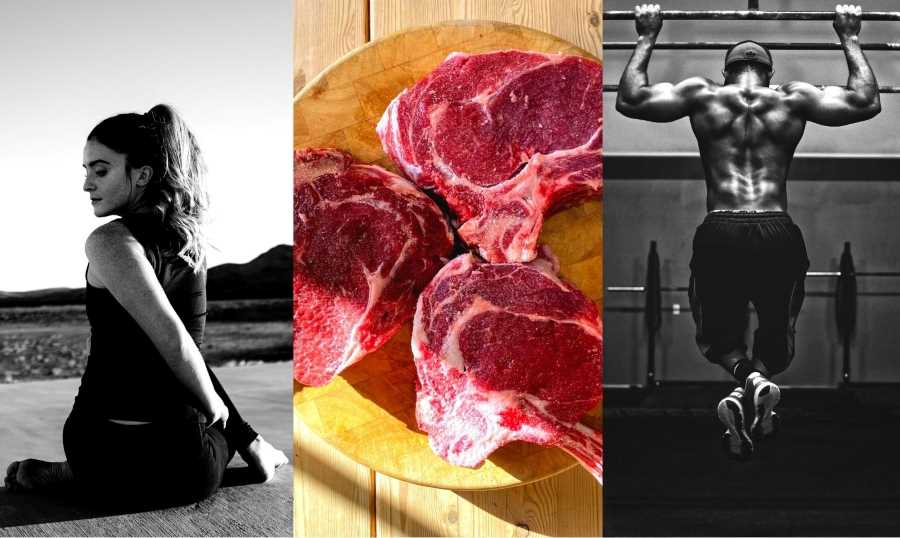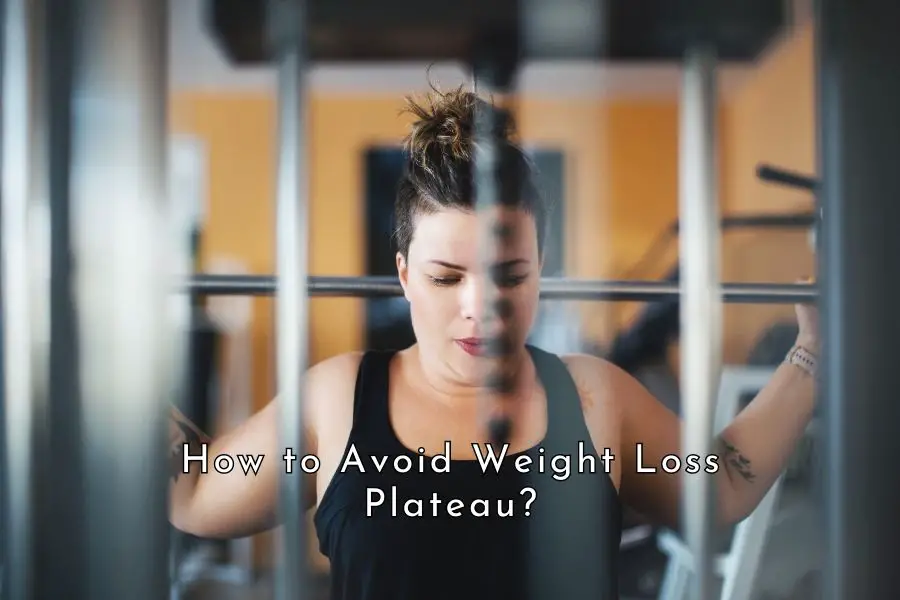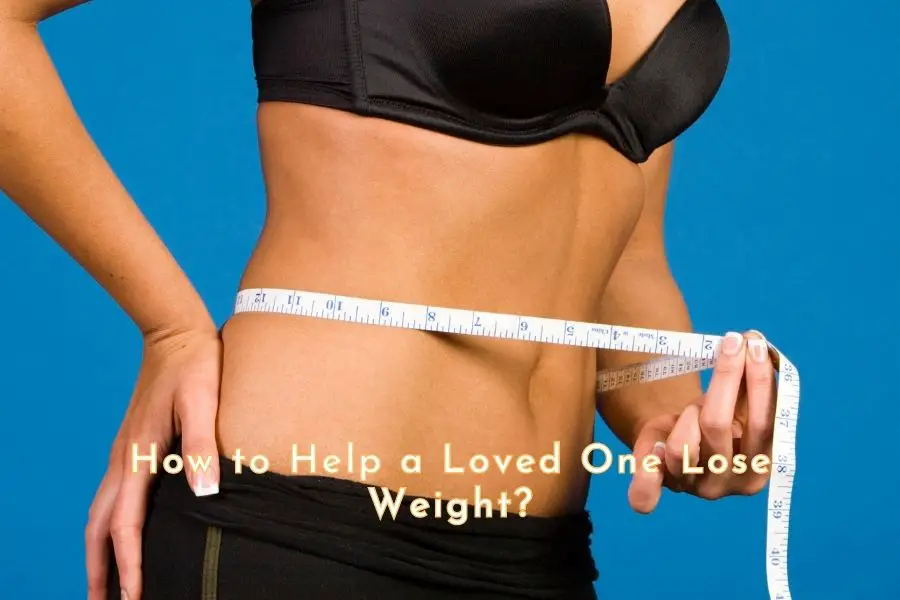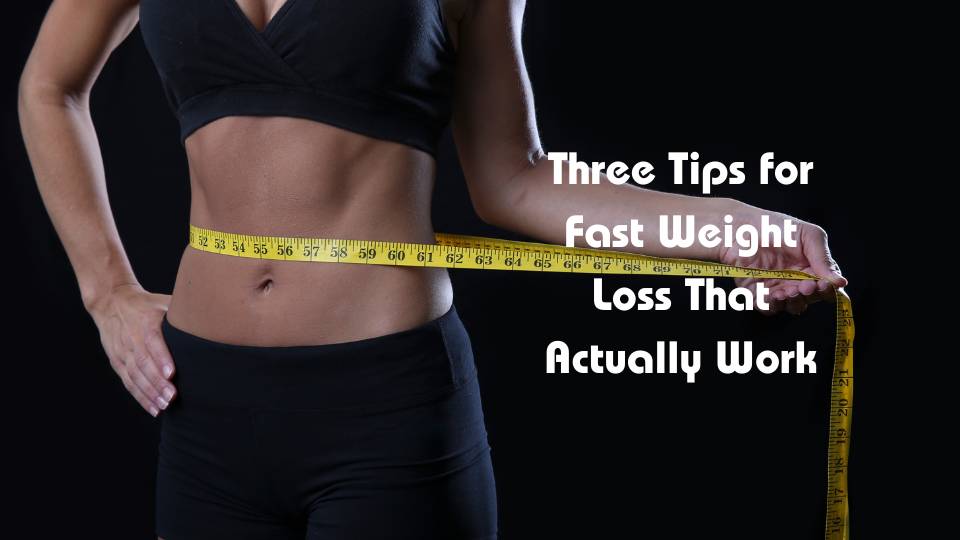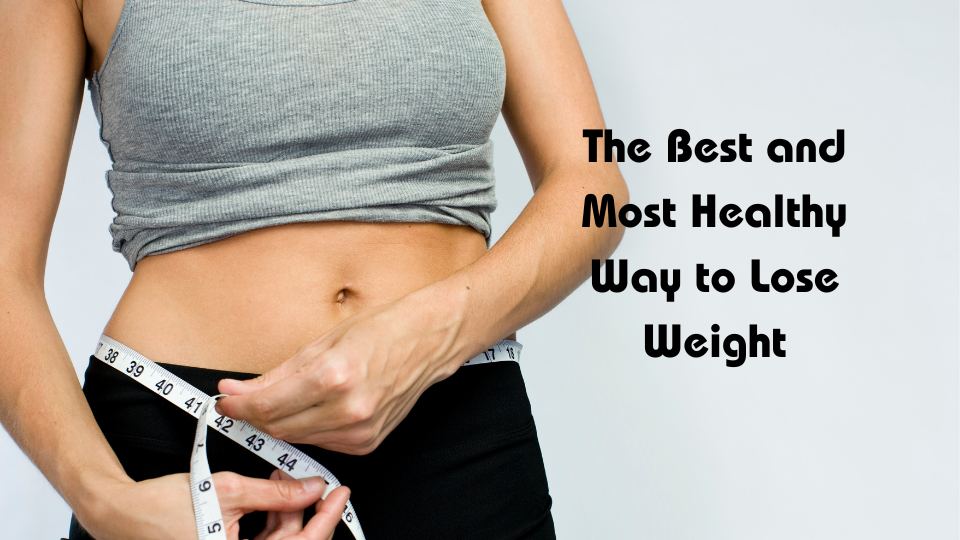Many people have managed to lose weight on the carnivore diet. In the last post on this topic, I have talked in detail about what to eat, how much to eat, how often to eat, and when to eat to help you accelerate weight loss on the carnivore diet.
In this post, I cover the top 15 tips in diet, exercise, and mental health areas to help you lose weight fast.
You can use these tips to improve your health and lose a few extra pounds even if you are not currently on the carnivore diet.
1. Prioritize proteins
If you want to lose weight in a healthy and sustainable way, you need to eat food that is nutrient-dense and low in calories. The food that best meets these criteria is animal proteins because:
- animal proteins are complete proteins
- animal proteins are superior compared to plant proteins
- animal proteins are low in calories
- animal proteins have higher satiety level compared to fat and carbs
- animal proteins are free from plant toxins.
Animal proteins are complete proteins
Animal proteins are complete proteins, i.e. they contain all 9 essential amino acids that the human body needs. Plant proteins, however, are considered incomplete proteins because they generally lack one or two essential amino acids.[1, 2]
Animal proteins are superior compared to plant proteins
Animal proteins are superior compared to plant proteins. They have much higher quality rankings than plant proteins with higher efficiency, biological value, utilization, and digestibility, i.e. gram per gram, your body can get out a lot more from animal proteins than plant proteins.[3, 4]
Proteins also have a much higher thermic effect than carbs and fat, i.e. your body uses up a lot more energy (15% to 30% of calories consumed) to digest proteins than carbs (5% to 10%) and fat (0% to 3%).[5]
Animal proteins are low in calories
Animal proteins are low in calories compared to carbohydrates and fat. For example, 100 grams of lean beef has only 151 calories, whereas 100 grams of white bread, multigrain bread, and beef fat have 266, 265, and 674 calories respectively.[6]
Therefore, it makes sense to prioritize proteins if you are trying to lose weight. However, please don’t cut down on fat too much. Because there is a very little amount of carbs on the carnivore diet, you do need fat for energy. Subsisting on lean meat only is not healthy because your liver has a limited capacity to deaminate proteins. Aim for the average meat cuts with some fat on them and don’t add extra fat to your meals.
Animal proteins have higher satiety level compared to fat and carb
Research has found that protein is a highly satiating micronutrient because it suppresses the hunger hormone, ghrelin while increasing the satiety hormone.[7, 8, 9, 10, 11]
Animal proteins are free from plant toxins
Plants are full of nutrients but also full of anti-nutrients or natural pesticides which they use as a self-defense mechanism. It is estimated that on average, Americans eat about 1.5 g of natural pesticides per person per day, which is about 10,000 times more than they eat of synthetic pesticide residues.[12]
A small amount of plant anti-nutrients consumed occasionally can be beneficial in that they can act as an acute stressor and make your body more resilient and stronger. However, consistent and large doses can be problematic. The World Health Organisation advises that long-term health consequences of these natural toxins include effects on the immune, reproductive or nervous systems, and also cancer.[13]
Animal proteins, however, are free from these plant toxins by definition.
Don’t fear fat
While you should emphasize good quality protein, please don’t fear fat on the carnivore diet. Because there is very little carb on the carnivore diet, you do need fat for fuel. Fat is also important for vitamin absorption.
I suggest starting with about 1:1 fat to protein ratio in terms of grams. Ground beef and ribeye steaks would generally give you this ratio.
If you do a lot of resistance training and are physically active, you might increase protein intake slightly so see how you feel. If you don’t feel good, add fat back to your diet.
If you would like to read in more detail about finding the optimal fat to protein ratio on the carnivore diet, please check out this post.
2. Eat whole fresh food
Eating food that is whole and fresh will result in a lower food intake overall because you will feel full and satiated faster than when you eat food that has been processed and flavor-enhanced.
You might have heard of the Australian man, Andrew Taylor, who lost 117 pounds (53 kg) after a year of eating only potatoes, mashed, boiled or baked, as much as he wanted and as often as he wanted. This is definitely not healthy in the long term but one thing good about it is it is unprocessed and boring.[14]
Similarly, on the carnivore diet, if you eat fresh meat, you will find that you can’t eat as much as when you eat processed meat like sausages, bacon, hot dogs, and other cured meat.
Or if you drink raw whole milk, there is only so much you can drink. But if you eat cheese, which has gone through some processing, you can eat quite a lot and because cheese is high in calories, you will consume a lot more calories.
Eating fresh whole food can be boring sometimes for some people, but boring food is your best friend when you are trying to lose the excess fat.
3. Avoid processed food
When you are trying to lose weight, avoid processed meat like bacon, sausages, and salami which can be high in calories and often contain preservatives and other additives.
For example, 100 grams of pork bacon, beef bacon, pork sausage and salami have 304, 332, 458, 425 calories respectively, compared to only 151 calories for the same amount of lean beef. [15, 16]
In addition to being high in calories, processed food is likely to be more enticing than unprocessed food due to added flavors.
Some of the additives are also questionable and you probably don’t want to put them in your body. For example, pork bacon commonly has sugar, seasonings, sodium nitrite, sodium phosphate, sodium erythorbate, and smoke.
If you can’t live without them, try to use them as flavorings rather than a main dish or even a side dish.
4. Limit dairy and honey
Milk, dairy products, and honey are high in carbs, fat or both and generally high in calories. They, therefore, should be either avoided or consumed in small quantities if you want to lose weight.
Milk is a nutritious and complete food. However, milk is intended for a growing animal, if you are done growing, it is best to avoid it or have it sparingly.
Dairy products are high in protein and fat and rich in calcium but also very high in calories, as can be seen from the table below. They are also not as satiating as lean meat.
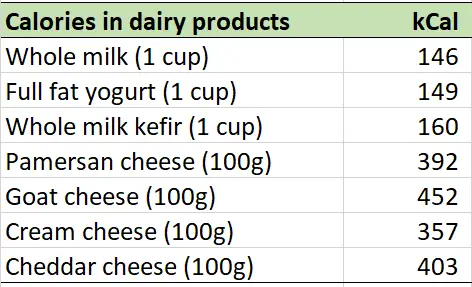
Honey has many health benefits, however, it is mostly sugar. 100 grams of honey have about 340 calories. Sugar will trigger the release of insulin, a fat-storage hormone, which is the opposite of what you want. Sugar also has a low satiety level and it is very easy to overeat.
5. Avoid snacking between meals
On the carnivore diet, you are unlikely to need to snack because its foods are nutritious and satiating. As mentioned above, proteins have a higher satiety level than carbs and fat.
Also on the carnivore diet, your energy level will remain constant because you will rely on fat for fuel instead of carbs. As a result, you won’t experience an energy crash which is caused by large blood sugar fluctuations associated with carbohydrate consumption.
However, some of you might still want to snack when on the carnivore diet because it has become a habit.
If you feel like eating something mid-morning or mid-afternoon, ask yourself if you are truly hungry or not or just want to eat out of boredom. If you are not hungry, drink a glass of water, go for a walk, read or do something to take your mind off food.
There can be exceptions, however. If you just start the carnivore diet, please just eat even when you are not hungry and just feel like eating something. Your focus at this stage is to adapt to the carnivore diet, not weight loss.
This is a recipe for a healthy and tasty carnivore snack – shredded beef – if you would like to snack and not feel guilty about it.
6. Eat less frequent
You might have heard it before that, to lose weight, you need to eat 5 to 6 small meals a day because it keeps your metabolism rate high while maintaining a stable blood sugar level.
However, this is a total myth. Studies have found that there is no difference in energy expenditure between nibbling and gorging nor does high-frequency meals support weight loss.[18, 19]
In contrast, it is found that low-frequency meals coupled with intermittent fasting are better for health and weight loss.[20, 21]
Leaving sufficient gaps between meals is important so that your body can have a break and, instead of digesting food, focus on other things like rejuvenating, and of course, burning off that excess fat.
When you first start the carnivore diet, you can eat 2-3 meals or more if you like. But you will find that, once you are fully adapted to this diet, 1 to 2 meals a day is generally sufficient.
This way of eating is also likely to be more consistent with how our ancestors would have eaten for millions of years. They were unlikely to have had access to three square meals a day every day. Sometimes they would have feasted when food was in abundance and sometimes they would have been forced to fast when they were unsuccessful with their hunts.
Dr. Jason Fung, the author of The Obesity Code, says his single best weight loss tip is “don’t eat all the time“.
I find that even children don’t need 3 square meals a day plus snacks.
I used to make sure my children eat breakfast before school every day, but not anymore. I let their body decide.
I would ask them in the morning if they feel like eating breakfast. If they want to, I would try to get them a high protein and fat and low carb meal (not always successful though). If they don’t, I would pack a bit more for lunch.
And I find that they would eat sometimes 3 meals a day, sometimes 2 and during a home school period due to lockdown, sometimes they just have 1 main meal a day.
7. Eat the last meal of the day early
Research has found that eating patterns aligning with circadian rhythms help with weight loss and metabolic health.[22, 23]
Your body’s circadian rhythm is the internal 24-hour clock running in the background of your brain and regulates the sleep and wake cycle at regular intervals.[24]
Aligning food consumption with your circadian rhythm means getting up when the sun is up and downing the light inside and getting ready for bed when it is dark outside. That also means not eating late at night and allowing your body at least 14 to 16 hours of fasting.
You should aim to eat the last meal at least 3 hours before you head for bed. Make sure that by the time you go to bed, your body will be resting instead of digesting the last meal.
This strategy also makes sense from an evolutionary perspective. It would have been difficult to hunt later during the day or at night and our ancestors were unlikely to eat when it was already dark.
8. Avoid or limit alcoholic beverages
I have written a lengthy post on the topic of alcohol on the carnivore diet here.
In summary, in my view, you should not drink alcohol on the carnivore diet or on any other diet for that matter because alcohol is a psychoactive drug that is capable of seriously affecting neurological pathways in your brain, altering your behaviors, and adversely impacting your health and wellbeing.
If you are trying to lose weight, alcohol is something you should definitely avoid or limit to a very small amount on rare occasions. Alcohol can cause weight gain because:
- Alcohol is high in calories and has no nutritional value, i.e. it’s just empty calories accompanied by a toxic substance, ethanol. Just two cans of regular beer have over 300 calories. A few drinks on a night out can easily add up to 400 to 500 calories in a short time. You will need to do a rigorous exercise for about 1 hour to burn off those 400 calories!
- Energy from alcohol is in the form of simple sugar which your body will prioritise using first before burning fat reserve. If it is accompanied by a high carb meal, you will have virtually no chance of burning off the excess fat
- Alcohol reduces your testosterone and muscle synthesis, both of which reduce your basal metabolic rate and can contribute to weight gain
- Alcohol increases your stress hormone, cortisol, which triggers your fight and flight mode. Too much cortisol encourages fat storage in your body
- Alcohol lowers inhibition and affect your judgement as mentioned above and you tend to make poor food choices under the influence of alcohol. Alcohol also causes overeating because it increases hunger signals.
9. Stay away from soft drinks, energy drinks and sports drinks
As mentioned above, if you want to lose weight in a healthy and sustainable way, you need to eat food that is nutrient-dense and low in calories.
Soft drinks, energy drinks, and sports drinks should be avoided if you try to lose weight or care about your health because they have no nutrition and are just empty calories with added caffeine and chemicals.
For example, one can of Coca-Cola has 140 calories and contains carbonated water, high fructose corn syrup, caramel color, phosphoric acid, natural flavors, and caffeine.[25] Hardly any nutrients there. Sugar and caffeine, both of which are bad for your health, are what give you a refresh and energetic feeling and make you addicted to Coke.
If these drinks are made with no sugar to appeal to calorie-conscious consumers, they often contain artificial sweeteners and other additives to enhance the taste. Studies have found that some artificial sweeteners are carcinogenic in animal models. However, epidemiological studies have not found the association between artificial sweetener consumption and cancer risk in humans.[26] Interpret the above information however you may but I can’t see any health benefit from drinking these drinks.
Some sports drinks may have added vitamins and minerals to appear healthy but they are high in added sugar and full of additives. For example, a 591mL bottle of Gatorade has 36g of carbohydrate, 34g of which is added sugar. Similarly, a 591 mL bottle of Powerade has 35g of carbohydrate, all of which is added sugar.[27]
The vitamins and minerals are simply a marketing tactic, people don’t drink sports drinks for the nutrients, they drink them for an energy boost due to the sugar content.
You don’t need to drink sports drinks for the added vitamins and minerals, you can get plenty of those on the carnivore diet already.
10. Practice intermittent fasting
It has been found that fasting can facilitate weight loss and has many other health benefits including improvements in blood pressure, total lipid profile and inflammatory markers, increase in insulin resistance, and lower cardiovascular risks.[28, 29, 30, 31, 32]
This makes logical sense. When it is not busy digesting food, your amazing body can burn off the stored fat while focusing on cleansing inside out and fixing underlying health issues.
Fasting just means not eating and it’s not hard to implement. If you eat dinner at 6 pm and breakfast at 6 am the next day, you’ve fasted for 12 hours. If you skip breakfast and eat lunch at 12 pm, you’ve fasted for 18 hours.
By increasing this fasting window gradually over time, you can build up to a longer fast like one day to a few-day fast, and get more benefits from fasting.
If you would like to learn more about fasting, it’s worth checking out Dr Jason Fung’s book on this topic (no affiliate). If you don’t want to buy his book, check out the talks and interviews that he has given. Videos and transcripts of those are freely available on the web. He also has a YouTube channel if you would like to check it out.
11. Get enough quality sleep
When it comes to weight loss, getting enough sleep is just as important as having a healthy diet and staying physically active.
Many studies have found an association between poor sleep quality and insufficient sleep and risks of overweight and obesity. The relation could be circular. Poor and insufficient sleep can contribute to weight gain and obesity. Conversely, obesity can lead to many co-morbidities such as sleep disorders. [33, 34, 35, 36, 37]
These findings are based on observational studies that can only show associations and can’t prove causation. However, there are underlying scientific and logical reasons that support them:[38, 39, 40, 41, 42]
- people with short sleep are likely to have elevated hunger hormone and suppressed satiety hormone. As a result, they have better appetite and tend to eat more, consequently resulting in weight gain
- people with more awake time will have more eating time and tend to eat more. However, increased energy intake to sustain additional wakefulness generally surpasses the actual energy expenditure leading to weight gain
- people who have poor sleep quality or don’t have sufficient sleep are less likely to be physically active. They feel too tired to exercise
- Being mentally tired due to lack of sleep can contribute to poor food choices, e.g. larger portion size and unhealthy food choices.
12. Reduce stress
Stress raises cortisol. Consistent stress means elevated cortisol levels and this has been linked to weight gain. Your body tends to build up visceral fat when under stress. Your appetite is likely to be stimulated and you are also more likely to overeat.[43]
If your weight has been creeping up even though your diet remains the same, stress could be one of the causes. If you think you suffer from chronic stress, please seek help.
The good news is some people have found that the carnivore diet has improved their mental health too.[44, 45, 46] The other thing you can do to improve your mental health if you haven’t already done are getting sufficient quality sleep (see above) and staying physically active which is covered in more detail below.
13. Keep your body moving
We are born to move.
There are also so many benefits associated with being physically active, from weight loss, better sleep quality, better brain health, improved mental health to better sex.
To be more active physically, a simple thing you can do is keep a diary of exactly what you do for a week and then identify the time where you can be more active.
For example, if you have been driving to work, see if you can swap the car for the train or the bus. If you have been sitting at your desk eating lunch while looking at your phone, see if you can eat lunch and then go for a short walk.
Below are some easy things that you can do:
- walk, bike or skateboard to work if possible
- take public transport and stand up instead of sitting down on the bus or the train
- get a standing desk at work or at least get up from your desk every hour or so if your work allows
- leave the phone at your desk and go for a stroll at lunch break
- go bush walking during the weekend
- if you have small children, take them to the playground often and actually play with them rather than sitting down on a bench and look at your phone
- pick up a sport, learn dancing
- rediscover old hobbies or find a new one that involves physical activities like woodwork, hiking, rock-climbing, swimming.
Due to Covid, a lot of the activities may be not possible, but YouTube is on 24/7, search for things like ‘full-body workout without equipment’, find something suitable for your fitness level, and just follow along with the exercises for at least 30 minutes a day.
14. Incorporate HIIT
HIIT can help you lose weight, reduce weight circumference and gain muscles.[47, 48, 49, 50, 51]
HIIT refers to high-intensity interval training that alternates between short periods of high-intensity and low intensity or recovery.
HIIT can be done with many types of exercises. For example, you can run for 20 seconds as fast as you can, then walk or jog slowly for 60 seconds to recover, then repeat. Or you can cycle on a stationary bike for 20 seconds as fast as you can, then pedal slowly or rest for 90 seconds, then repeat.
During the high-intensity period, your heart rate would increase rapidly to about 80-90% of your maximum heart rate. Due to the level of intensity of this kind of exercise, you would only need to do about 10 to 20 minutes each session. This is one of the advantages of HIIT: you don’t need to spend hours a week in the gym but still get many benefits.
15. Build muscles with resistance training
Building muscles help with weight loss because when at rest, muscles burn more calories than fat and other tissues. The resting metabolic rate of skeletal muscle was 12.6 compared to only 4.4 for adipose tissue and 11.6 for most other tissues.[52]
Resistance exercises have many benefits beyond weight loss including better body composition, stronger bones, improved mobility and balance, improved cognitive function, better sleep quality, and increased self-esteem.
The best way to build muscles is resistance training, which is any kind of exercise in which your muscles are forced to contract against external resistance.
Examples of resistance training are:
- Exercises using your own body weight for example push-ups, chin-ups, squats, lunges and mountain climbing. These are very effective exercises that are free and you can do them anywhere even with little space
- Exercises using resistance bands which are easy to do, low cost, convenient and you can use them for a total body work out
- Lifting free weights such as dumbbells, barbells and kettlebells or just big jugs filled with water or sand. Free weights are versatile, functional and effective and don’t cost much
- Lifting with weight machines. Weight machines are safer for beginners and better at isolating and training weaker muscles. They can complement free weight training for a complete body workout.
The most important element of an exercise program is consistency. No matter how effective an exercise or equipment can be, if you don’t perform it regularly, you won’t benefit from it. So, please choose something that you think you are most likely to stick to in the long term.
Disclaimer: The information in this post is for reference purposes only and not intended to constitute or replace professional medical advice. Please consult a qualified medical professional before making any changes to your diet or lifestyle.

